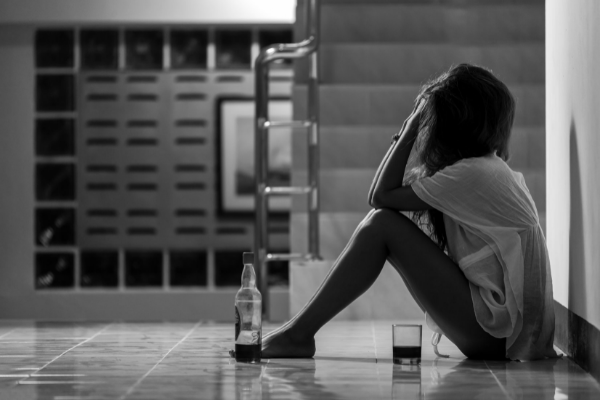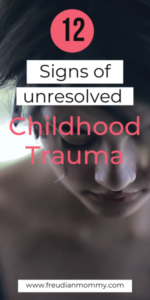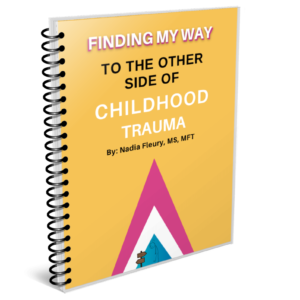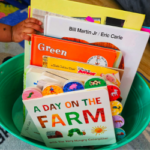12 signs and symptoms of repressed Adverse Childhood Experiences in adults
If you’ve ever wondered what can cause someone to feel stuck and unable to move forward in life, the answer is, without question, childhood trauma, particularly unresolved childhood trauma. These 12 Signs of Unresolved Childhood Trauma in Adults will put things into perspective for you if you experienced adversity as a child.
Childhood trauma not only alters and damages a developing brain in the early stages of life, but it can also cause health, social and emotional problems later on in life. However, with the proper support, people can overcome some of the many hurdles that emerged from a traumatic childhood.

*This post contains affiliate links, at no additional cost to you I am compensated if you purchase after clicking on the links.*
Even though childhood trauma will inevitably affect your life, hidden childhood trauma that remains in the dark or, as some say, is unresolved can further complicate your overall health, social and emotional health.
The signs and symptoms of unresolved childhood trauma in adults are always apparent one way or another. But because people who are not doctors or mental health professionals don’t know the signs and symptoms of repressed childhood trauma, they may view those who struggle with the consequences of the traumas as loners, distrusting, and pessimists.
The negative behaviors that these individuals frequently exhibit are often a cover-up of the pain and hurt that is hidden within. Often, these individuals are on high alert and don’t know who to trust, and some may feel stuck, feel like they are always struggling, and are unable to move ahead.
What is considered childhood trauma?
According to the Diagnostic and Statistical Manual of Mental Disorders-IV (DSM 5), trauma in children six years of age and younger is defined as exposure to actual or threatened death, serious injury, or sexual violence. This entails direct exposure to the trauma, witnessing trauma, and learning that the trauma happened to a parent or a caregiver.
Contrarily, a critical study on childhood trauma called The Adverse Childhood Experiences Study or ACEs defines childhood trauma as traumatic events that happened before a person’s 18th birthday.
This groundbreaking study measured ten types of childhood trauma. Five are personal; physical abuse, verbal abuse, sexual abuse, physical neglect, and emotional neglect.
And five are related to other family members- an alcoholic parent, a mother who’s a victim of domestic violence, a family member in jail, a family member diagnosed with a mental illness, and the removal of a parent through divorce, death, or abandonment.
Long-term effects of childhood trauma
The long-term effects of childhood trauma can be life-damaging if it remains repressed or unresolved.

Multiple studies have found a connection between childhood trauma and the chronic diseases people develop as adults, such as chronic diseases and social and emotional problems.
Adults living with childhood trauma are at risk for developing social and emotional issues. And it is unfortunate that the more trauma that took place in a person’s childhood, the more likely they are to undergo social and emotional challenges later in life.
To put things into perspective for you, let’s look at a few of the statistics found by the Adverse Childhood Experiences (ACE) study, which correlated ACE scores against health outcomes. That is to say, the higher your ACE score, the worse your health outcomes.
Dr. Vincent Felitti at Kaiser and Dr. Robert Anda at the CDC, both pioneers of public health, asked 17,500 adults about their history of exposure to Adverse Childhood Experiences (ACEs), and here’s what they found:
1) They found that, unfortunately, Childhood Adverse Experiences are astonishingly common, even among middle-class, college-educated individuals (67 percent of the 17,500 had at least 1 ACE and 12.6 percent or 1 in 8, had 4 or more ACEs).
2) These brilliant researchers also found that the higher your ACE score, the worse your health outcomes.
Based on the Adverse Childhood Experiences Study, I am going to share with you 12 Signs of Unresolved Childhood Trauma in Adults.
12 Signs of Unresolved Childhood Trauma in Adults
1) Difficulty forming relationships/Attachment issues:
Adults who do not form a healthy and positive attachment to their parents and caregivers have trouble establishing healthy relationships as children. These individuals also have difficulty developing and maintaining romantic relationships as adults, so they tend to have more marriages.
Your brain is here to protect you, so one of the implications of childhood trauma is that the world is not really a safe place. This is why individual with a high ACE score has difficulty trusting others and fear of abandonment.
2) Anxiety and depression:
Multiple other studies have confirmed that childhood trauma is linked with greater rates of anxiety and depression. Someone with an ACE score of 4 is 4.5 times more likely to become depressed than someone with an ACE score of 0.
3) Inability to cope with routined stressful life events:
Adults who do not develop healthy coping habits as children struggle to cope with day-to-day life stressors.
4) Low self-esteem:
Adults with adverse childhood experiences can develop PTSD. And adults who develop PTSD from childhood trauma may struggle with fear, anger, self-destructive behavior, and low self-esteem.
5) Poor academic achievement/Learning disability:
Childhood trauma affects one ability to learn. When all of your resources are going to the limbic system, the survival part of the brain, there is less blood flow for education and learning because, ultimately, survival trumps everything.
6) Substance dependence/Addiction behaviors of any sort:
Childhood trauma affects areas in the brain like the nucleus accumbens, the brain’s pleasure and reward center that is connected to substance dependence. These high ACE scores also tend to have more drug prescriptions which can lead to addiction.
Additionally, individuals who have 4 or more adverse childhood experiences are twice as likely to be smokers, are 7 times more likely to be alcoholic, and 10 times more likely to have injected street drugs than someone with 0 ACEs. When someone is so used to living in a chronic state of fear, it is easier to regulate that state through drugs and alcohol use, cutting, and self-harm.
7) Hyperactive or constantly on edge:
The hypothalamic-pituitary-adrenal axis, the brain’s and body’s stress response system oversee our fight or flight response. When we are in danger, working together, these systems trigger stress hormones such as cortisol and adrenaline to provide us with the energy resources necessary to thrive in dangerous situations. However, when the stress response system is triggered too frequently, long-term problems such as hypervigilance and being easily startled can occur.
Recommended Childhood Trauma Books:
The Body Keeps the Score by Bessel van der Kolk M.D.
What Happened to You?: Conversations on Trauma, Resilience, and Healing by Oprah Winfrey & Dr. Bruce Perry
The Deepest Well: Healing the Long-Term Effects of Childhood Trauma and Adversity by Dr. Nadine Burke Harris
8) Constantly ill or sick:
Adverse Childhood Experiences affect the developing immune system, which works together to protect you from bacteria, viruses, parasites, and fungi that cause infection, illness, and disease. People with a four-plus ACE score are 240 percent at greater risk of hepatitis, 390 percent more likely to have a chronic obstructive pulmonary disease, 240 percent higher risk for a sexually-transmitted disease, and have more autoimmune diseases.
9) Have attempted suicide:
Furthermore, other studies, not just the ACE, also affirmed that suicide attempts were significantly greater in adults who experienced childhood trauma such as physical abuse, sexual abuse, and parental domestic violence. Compared with people with a zero ACE score, an individual with an ACE score of 4 or more is 12 times more likely to have attempted suicide.
10) Have a bad memory/poor concentration:
When you’re under constant or chronic stress, the stress hormone cortisol remains high. When that happens, it affects your body’s most essential functions, which include your memory and concentration.
11) Struggle with obesity:
Weight gain can be an indication of the body being highly stressed.
12) Engage in high-risk behavior:
Adverse Childhood Experiences hinder the prefrontal cortex, which is necessary for impulse control.
Treating childhood trauma in adults
I understand what you just read isn’t the best of news. But just because you have adverse childhood experiences does not mean you are completely doomed.
Yes, childhood trauma can change the trajectory of your life, however, you can take action steps to minimize the effects of those childhood adverse experiences on your life.
If you are ready to start healing from childhood trauma, I have written my first eBook and would love for you to purchase a copy.
This book is based on my knowledge as a psychotherapist. I will continue to update the eBook and will make sure you get a copy each time it is updated. You can get your instant copy of the eBook “Finding My Way To The Other Side Of Childhood Trauma” here. Thank you for your support.















Love your posts, Nadia! Thank you for all this info!
Such a well-written and well-researched article! Thank you for sharing. I’m looking forward to your follow-up as to how to deal with repressed childhood trauma as an adult.
Nice post 🙂
This is so informative! It’s interesting how it can even affect our relationships later on in life.
Great article. Childhood trauma can manifest into so many different types of adult issues. I think I suffer from 5 of those mentioned myself 😅But lots of great info here. Thanks for sharing.